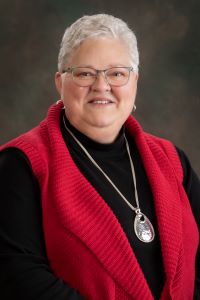Published on May 12, 2022
Age Your Way

By Melinda Cornell for Messenger-Inquirer
In 1963, President John F. Kennedy declared May Older Americans Month (first named Senior Citizens Month). During Older Americans Month (OAM), communities across America honor the contributions that older adults make to society. Older adults are vital to the success of many programs and activities in the community.
They serve as family members, civic leaders, mentors, teachers, volunteers, members of the workforce and more.
The Administration for Community Living (ACL) has declared that this year's theme for OAM is Age My Way. This theme will focus on aging in place. The recent pandemic has forced older adults to look at ways they can continue to be positive, active role models in the community, yet stay in their homes. As each individual is unique, Aging My Way will also be different for everyone. However, the ACL has four common things everyone can include:
- Planning: Think about what you will need and want in the future, from home and community-based services to community activities that interest you.
- Engagement: Remain involved and contribute to your community through work, volunteer or civic participation opportunities.
- Access: Make home improvements and modifications, use assistive technologies and customize supports to help you better age in place.
- Connection: Maintain social activities and relationships to combat social isolation and stay connected to your community.
There are many ways to get involved in your community during Older Americans Month. As a younger person in the community, you can recognize the older adults in your programs, congregations and families by setting aside a day to celebrate them. Write a letter to an older adult that holds a special place in your heart, telling them how important they are to you. Take them to lunch, dinner or maybe even a movie. If they served in the military, thank them for their service. Most importantly, find or create ways for the older adult to share their wealth of knowledge.
If you are the older adult, think about what you can do to remain active in your community. Ask yourself, "What can I do to maintain my sense of purpose and value?" There is possibly some truth to what George Bernard Shaw once said - "We don't stop playing because we grow old; we grow old because we stop playing."
Look for the things you enjoy and find ways in which you can continue to contribute to your community.
Owensboro Health's Connections Program at the Healthpark has several activities planned throughout the month. The goal of Connections is to connect each person to better health through education, socialization, fitness and travel. Each quarter, the program offers many activities for older adults to stay active. Essentially you can Age My Way through small group or individual activities or larger and more robust groups, and it's your choice. The important thing is to stay involved and surround yourself with those who will encourage you to live your best life your way!
Melinda Cornell is the supervisor of Owensboro Health's new Connections Program at the Healthpark.
About Owensboro Health
Owensboro Health is a nonprofit health system with a mission to heal the sick and to improve the health of the communities it serves in Kentucky and Indiana. The system includes Owensboro Health Regional Hospital, nationally recognized for design, architecture and engineering; Owensboro Health Muhlenberg Community Hospital; Owensboro Health Twin Lakes Medical Center; the Owensboro Health Medical Group comprised of over 350 providers at more than 30 locations; four outpatient Healthplex facilities, a certified medical fitness facility, the Healthpark; a weight management program, and the Mitchell Memorial Cancer Center.
On average each year, we have more than 19,000 inpatient admissions, deliver 2,000 babies and provide the region’s only Level III NICU. Owensboro Health physicians perform nearly 33,000 surgical procedures, including nearly 150 open-heart surgeries. Our physicians and staff have 90,000 Emergency Department visits and more than 1.25 million outpatient visits annually. Visit our home page for more information.